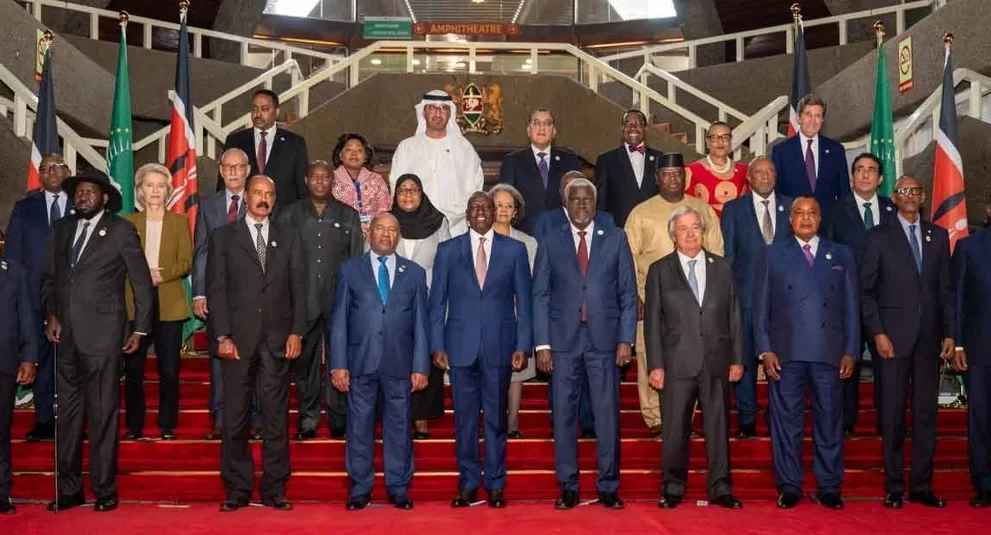Nairobi, Kenya: Kenya’s President William Ruto’s bold offer to host the second Africa Climate Summit (ACS) has ignited a debate, revealing both the continent’s urgent need for climate action and the complex politics surrounding it. Ruto’s announcement, made at the African Union (AU) Headquarters in Ethiopia, came amidst the backdrop of Kenya’s failed bid for the AU Commission Chairperson, adding a layer of intrigue to the summit’s future.
The inaugural ACS in Nairobi, lauded for its US$26 billion in pledges, was a testament to Kenya’s organisational prowess. However, it also drew criticism for its limited involvement of African voices and the perceived influence of Western agendas. As Ali M. Zunguka, a Kenyan development sector professional, observes, “While the first summit was a logistical triumph, questions linger about its true ownership and agenda-setting.”
President Ruto, however, remains resolute. “We must not waver in our commitment to addressing the climate crisis,” he declared, reiterating his administration’s dedication even amid global shifts, such as the US’s withdrawal from the Paris Agreement. “Africa’s voice must be heard, and its needs prioritised.”
Yet, the lack of immediate enthusiasm from other African nations to host the second summit raises concerns. “If no other African country is willing to host the second edition of the ACS, it would suggest that this is more of a Ruto initiative than an AU-driven one,” Zunguka notes. “This risks undermining the summit’s potential to become a truly continental platform.”
The inaugural ACS, despite its success, saw only a fraction of African heads of state in attendance, hinting at a possible disconnect. Zunguka suggests, “The short lead-time for the first summit likely focused efforts on logistics, perhaps at the expense of broader engagement with other African governments.”
However, Ethiopia’s recent bid to host the 2025 ACS at the AU Headquarters in Addis Ababa offers a glimmer of hope. “The first ACS was a pivotal moment in strengthening Africa’s role on the global stage,” acknowledged Ethiopia’s State Minister of Foreign Affairs, Ambassador Mesganu Arga. “We recognize its importance in advancing our continent’s climate agenda.”
Zunguka believes that a Francophone nation hosting the summit would be a strategic move. “It would bridge the divide between Anglophone and Francophone countries, leveraging the latter’s strong regional unity,” he argues. “This could significantly amplify Africa’s voice on the global stage.”
Looking ahead, the second ACS arrives at a crucial juncture, preceding COP30 in Brazil. “Africa must present a united front,” Zunguka asserts. “The summit provides an ideal platform to develop our continent’s position, especially concerning the impact of climate solutions on our rural communities.”
Ultimately, the success of the ACS hinges on its ability to transcend national interests and become a genuine continental movement. Whether it becomes “Ruto’s climate summit” or a rallying cry for a united Africa remains to be seen.




